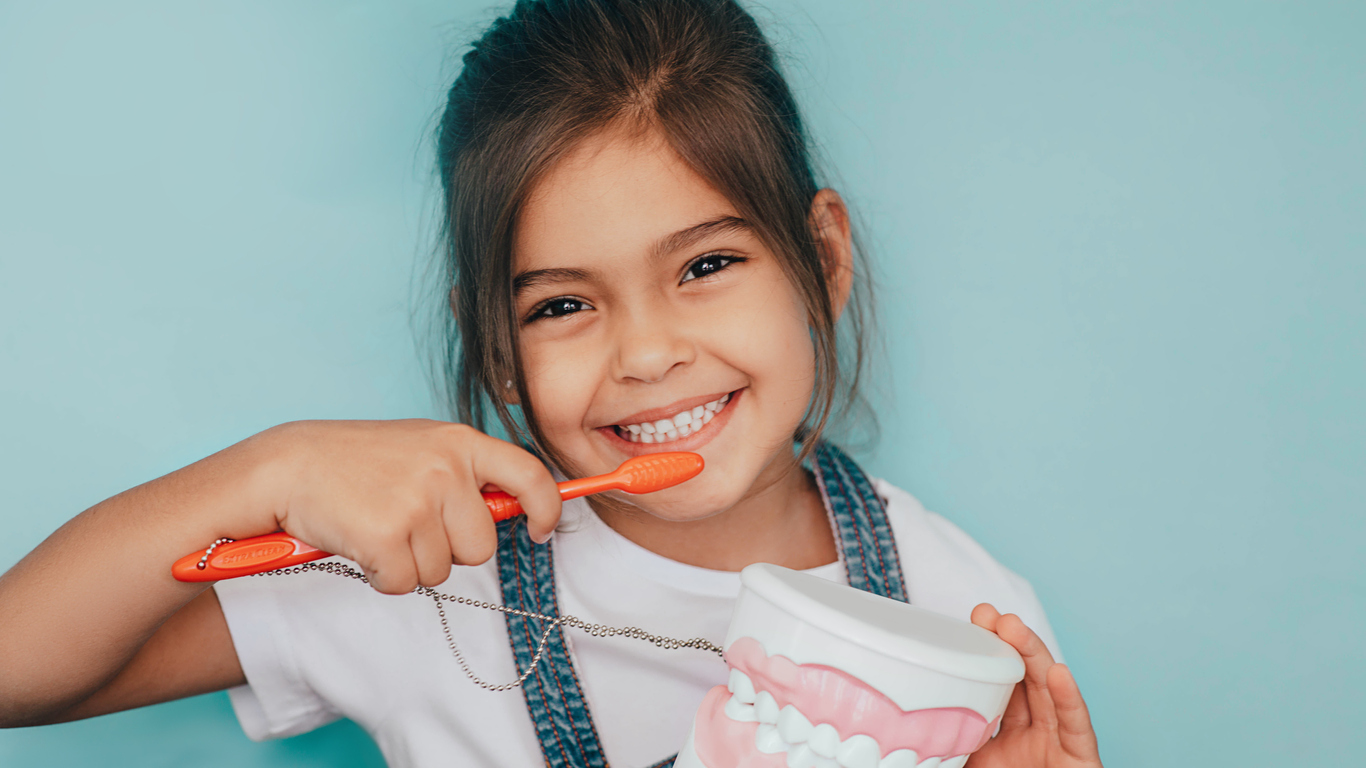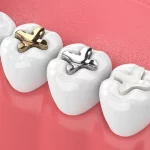

Dental care for children
In Australia, tooth decay in children is on the rise. Children aged 5 to 10 years have an average of one and a half decayed, missing or filled baby teeth. So, it’s more important than ever to teach your child good oral health habits that will stay with them for life.
Caring for children’s teeth is important
It’s important to look after your child’s teeth from the moment they start teething. Keeping your child’s teeth and gums clean will protect against infection, cavities and pain. Decayed baby teeth can damage the permanent (adult) teeth underneath.
It’s important for your child to get into a regular oral hygiene routine to prevent tooth decay. Babies can be affected by tooth decay as soon as their first teeth arrive. The first signs of decay often appear as white spots or lines on the front teeth.
If a child’s tooth is lost due to decay, it can cause crowding problems when their adult teeth come through later.
Dental care for babies
Many babies begin teething at around 3 months old. Their first teeth usually appear at around 6 to 9 months. By the age of 1, a baby will usually have around 8 teeth. But babies develop at different rates, so this can vary.
You should begin cleaning your baby’s teeth as soon as they arrive. This can be done by:
- Wiping with a soft cloth
- Brushing with a soft toothbrush and water
Teeth cleaning for older children
From the age of 18 months, you can start using a low-fluoride toothpaste when you brush your child’s teeth.
You can buy toothpaste and small-headed toothbrushes, made especially for babies or children, at your local pharmacy or supermarket. You will need to clean your baby’s or child’s teeth until they are old enough to do it themselves. This is usually around the age of 7 years.
Take your baby to visit the dentist as soon as their teeth begin to appear. This way, the dentist can check that their teeth are developing correctly.
Tips to keep your child’s teeth clean
- Help your child to brush their teeth from the time they get their first tooth until they are 7 or 8 years old. After that, supervising them is still important. Brush your child’s teeth twice a day, using small circular motions. Their teeth should be cleaned after eating and before bed.
- Use toothpaste with fluoride that is suitable for children. This can help to strengthen the outside of the teeth and prevent decay.
- Make sure your children brush their teeth for at least 2 minutes and remind them not to swallow the toothpaste.
- Try to get into a regular tooth brushing routine, and give your child plenty of praise when they brush their teeth well.
- Replace toothbrushes or toothbrush heads every 3 months.
- Children should floss as soon as they have 2 teeth that touching each other. You should supervise flossing until they are about 10 years old.
- To develop strong teeth, make sure your child eats a healthy, balanced diet. Avoid foods with a lot of added sugar, such as lollies, biscuits and soft drinks. Always choose fluoridated tap water.
Visiting the dentist
Regular check-ups
Regular dental check-ups are important from the age of 1, or within 6 months of the first tooth appearing.
Always make a visit to the dentist a positive experience. Never use the dentist as a threat for not brushing teeth or other behaviour.
Corrective treatment
As your child’s adult teeth grow through, make an appointment with the dentist if you notice any misalignment of the teeth or jaw. They will advise whether corrective treatment is required.
When to seek further help
See the dentist if your child develops any of the following:
- bleeding, red or swollen gums
- pus coming from the gums
- a bad taste in the mouth that won’t go away
- abscesses (these can be under the teeth and will usually be very painful)
You can find your nearest dentist in the National Health Services Directory.
Costs of dental care
About half of Australians visit the dentist every year. With tooth decay on the rise in Australia, it’s vital to make sure you’ll be able to afford a dentist if your child needs dental care.
The Australian Government covers the dental costs of some children through Medicare. You can check whether your child is eligible on the Child Dental Benefits Schedule website.
Some people use private health insurance to pay some or all of their dental costs. Most people with insurance will still have to pay some of the costs themselves. This is known as the ‘gap payment’ – the difference between what the dentist charges and what the insurer will pay.
Health insurance that pays for dental care is known as ‘General Treatment’ (sometimes called ‘Extras’ or ‘Ancillary’). Health insurance that only covers hospital or ambulance does not pay for dental care.
Policies vary widely, so if you have private health insurance, check:
- What dental care you are covered for
- The amount you will receive back from the fund
- The limit on how much you can claim in a year



